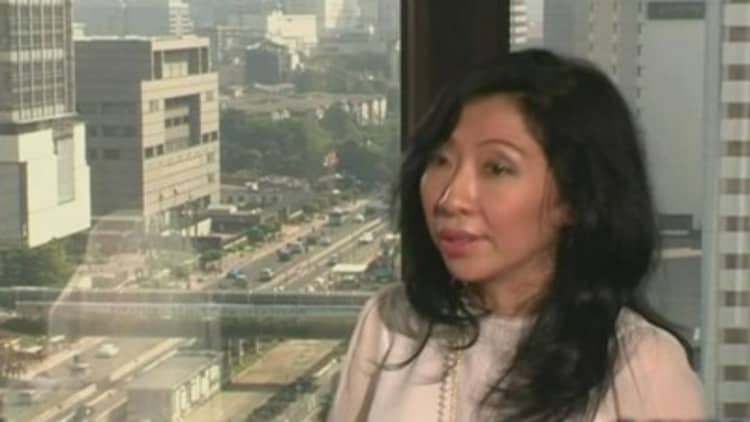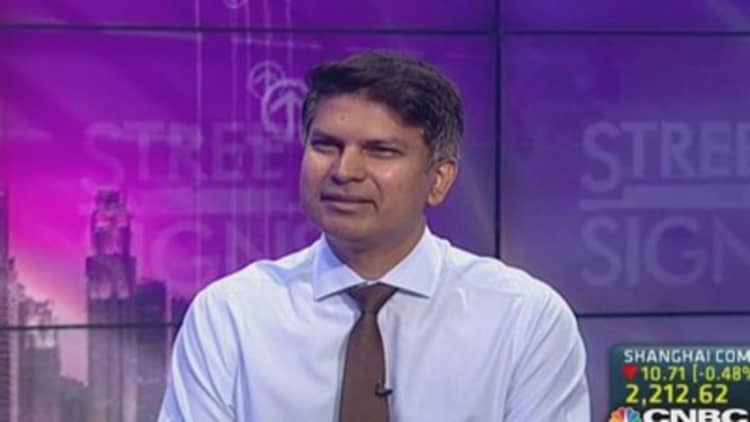High fuel subsidies, long the albatross of Indonesia's finances, may go under the knife sooner, rather than later, as some analysts expect the lame-duck president to pre-empt his successor.
"While the term of President Susilo Bambang Yudhoyono (SBY) ends in the next two months, we could be seeing subsidized fuel price increases before [president-elect] Jokowi assumes the presidency in October," CIMB said in a note last week.
Read More With Jokowi confirmed what's next for Jakarta stocks?
Fuel subsidies have long dogged the country, crowding out other government spending, including much-needed infrastructure projects.
In 2014, total energy subsidies are expected to rise to a record of more than 350 trillion rupiah ($29.75 billion), coming in at around 21 percent of the government's budget and around 3.4 percent of gross domestic product (GDP), according to data from CIMB.

But despite years of politicians shying from aggressive cuts for fear of committing political suicide, CIMB sees five reasons SBY may make the cuts his swan song.
The first three come from Indonesia's recent readings on inflation, economic growth and its current account deficit.
Read More Tough juggle ahead for Indonesia's new president
For one, inflation has been relatively contained, declining in July to 4.5 percent on-year from 6.7 percent in June, just a year after subsidized fuel prices rose 22-44 percent , CIMB noted, suggesting the risk is contained. In June of 2013, the government cut fuel subsidies despite street protests, sending July 2013 inflation to a four-year high of 8.61 percent.
Indonesia's current account deficit also remains high – at 4.3 percent of GDP in the second quarter – driven largely by oil imports, CIMB noted.
"Cutting the fuel subsidy will yield more rational fuel usage, thus resulting in a more reasonable oil import figure," it said.
In addition, economic growth is slowing sharply, coming in at 5.12 percent on-year in the second quarter, its slowest since 2009, with the government forced to trim other spending, especially with Middle East tensions spurring oil prices higher, CIMB noted.
Read More Indonesia's Q2 economy grew its slowest since 2009
"Cutting the fuel subsidy would give more fiscal room to the government to spend on infrastructure and thus rejuvenate the economy in the mid-term," the report said.
The next reason comes from the ballooning subsidy bill in the current budget, with the government currently rationing the remaining quota of subsidized fuel.
"The rationing scheme is, at best, set to fail. In a worst-case scenario, the discontent could boil over into public protests. This is arguably not a legacy SBY wants to leave behind after 10 years in power," CIMB said. "Lastly, following the peaceful elections, SBY's popularity is on a high, which is unlikely to be significantly dented by a fuel price hike."

But the market isn't entirely convinced that SBY will be the one to wield the knife.
"It's not quite the consensus completely, but the probability has risen over the last few weeks," Daniel Wilson, an economist at ANZ, said.
ANZ's core view is that the incoming president, Jokowi, will be the one to adjust fuel prices, likely starting in early 2015, Wilson said.
Read More What Indonesia really needs to kick-start growth
But others do believe SBY will step up to the plate.
"It is likely," said Daphne Roth, head of equity research for Asia at ABN Amro. She expects the market may face a negative knee-jerk reaction if SBY acts.
"It will create inflationary pressure that could weigh on consumption, but in the longer term, it is good. Most people realize it would be a step in the right direction so the government can allocate the resources better," she said.
Wilson, however, expects any earlier-than-expected cut to the subsidies could spur a positive market reaction.
"Long-term investors would be able to see through the short-term inflation spike," he said.
There's another factor that may help to mitigate the economic impact of fuel price increases: Despite the enormous cost to the government, the subsidy may not be providing much help to its target lower income group.
"Various studies have all concluded that the fuel subsidy is enjoyed more by the middle class, those who could afford regular market prices," CIMB said.
—By CNBC.Com's Leslie Shaffer; Follow her on Twitter @LeslieShaffer1


